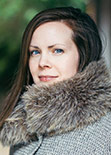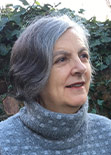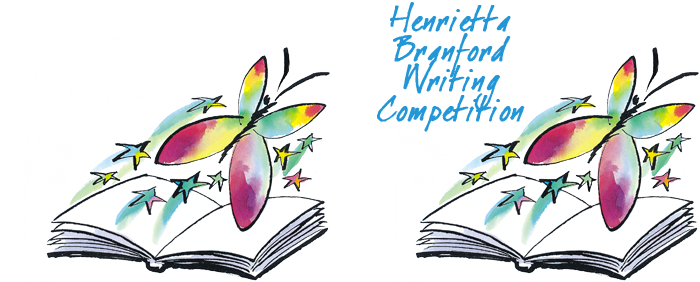Author: Louise Finch

The Branford Boase Award judges admired the way you structure The Eternal Return of Clara Hart and its handling of contemporary issues. Where did the idea for the book come from and what was your starting point?
It’s a very personal book in a lot of ways, drawing on real life experiences that have shaped my life and made me passionate about tackling misogyny and shining a light on misconceptions about sexual assault. I was thinking a lot at that time about the various experiences of harassment and abuse that have impacted my life, starting in young adulthood and recurring consistently over the years, and how devastating it is that so many young women are still going through those same experiences. This is an issue I would have hoped we’d have made progress on over those decades, but sometimes it feels like it’s going backwards.
In terms of the structure, I was actually writing another novel just before this one which was also a time-loop story, but I wasn’t connecting to what I’d written and just couldn’t get excited about it. Luckily when I moved onto this new idea, that time-loop structure stuck. I could immediately see the potential of using that circular structure not only to echo my own feelings at the time, but also to look at these issues from a slightly different perspective, and the concept for The Eternal Return of Clara Hart was born.
What were the challenges of writing a book with a repeating time-loop?
There were quite a few challenges to the time-loop! The first and most obvious is trying to avoid repetition and ensuring that every version of the day feels fresh in some way. But I think the bigger challenge was trying to make sure that each ‘reset’ didn’t feel like a loss of progress as the main character is, in a literal sense, going back to the start.
To avoid those pitfalls, the day doesn’t always start at the beginning and I also tried to ensure it’s clear each time how Spence will try to do things differently so we can be rooting for him to succeed, or at least to learn something new to take forward into the next version of the day. There’s always progression.
Could you describe your working relationship with your editor, Siobhán Parkinson for us? What did you enjoy most about working together on your book?
It was an absolute dream to work with Siobhán! Not only is she an experienced, talented editor but she was incredibly kind and supportive too during my moments of self-doubt and I was so grateful for her reassurance and unwavering faith that everything would come together.
This was a difficult book to write and edit in many ways, so being in such a sure pair of hands was so important. The ending of this book was particularly hard to navigate to ensure it felt hopeful while not shying away from the reality of the situation the reader is left with. Siobhán really understood that and I appreciated her careful steer in getting that balance right.
What is your favourite scene in your book and why?
There’s a scene in the middle of the book where Spence opens up to Clara about his mum’s death, which is probably one of my favourites. The two of them are sitting side by side in Spence’s car as the rain starts to fall, which is quite an intimate and enclosed space to be and that’s confronting for Spence. But then Clara starts to pry him open through her gentle questioning, breaking down a barrier that’s been up since the start of the book. It’s a turning point in their relationship, in the story and in Spence’s awareness of his own problems, and it’s quite a special scene to me, although it was another scene that I found tricky to write.
What advice would you give to debut writers?
My key advice to a debut writer is to find other writers to share the journey. Excuse the cliché, but publishing your first novel really is a rollercoaster! It’s so important to have good support systems in place and other writers are going through the same ups and downs so they will understand completely.
Editor: Siobhán Parkinson

What was it about Louise’s writing that most excited you about her book?
The voices. Louise has a wonderful ear for how young people talk, and the authenticity of her dialogue, along with Spence’s own voice, really made a strong impression from the very beginning,
What were the main things you worked on with her as her editor?
Truth be told, Louise did not need much hand-holding. She is a remarkably assured writer for a debut author, and my editorial queries and suggestions were of a very minor nature. I felt that the best way I could be helpful was to encourage this terrific literary talent.
Sexual violation and manipulative behaviour are at the heart of the story, and Louise handled this sensitive subject matter with great delicacy and in a multi-layered way. We agreed that it would be a good idea to have a couple of other people read the MS also, and the input of our two external readers was very reassuring and helpful, and generally confirmed my own sense of how well the book was working.
What do you think marks out the most successful writers for young people?
The most important thing for a YA writer is to be able to meet readers where they are at in their increasingly complex lives and NOT TALK DOWN TO THEM. Readers of any age want to be taken seriously, but not all adults, writers included, know how to do that when it comes to a young readership. The ones who get that, and who can deliver that respect in their writing, are the writers who succeed.
What do you find most satisfying about being an editor?
Watching a writer grow in confidence in their own ability to see their project through and connect with their readership.
What advice would you give anyone wanting to write for a YA readership?
Talk to that readership, move silently among them, eavesdrop on them, listen beyond the trivial. If you can write what they say in the way that they say it, you will hear what is concerning them, and that will inform your work, and they will respond to it.
The Eternal Return of Clara Hart is published by Little Island Books, 978-1915071026, £8.99 pbk.
Thank you to Louise Finch and to Siobhán Parkinson for answering our questions.



